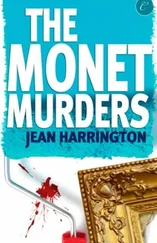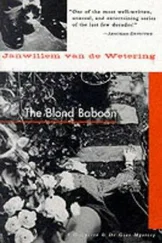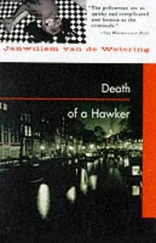Janwillem De Wetering - The Mind-Murders
Здесь есть возможность читать онлайн «Janwillem De Wetering - The Mind-Murders» весь текст электронной книги совершенно бесплатно (целиком полную версию без сокращений). В некоторых случаях можно слушать аудио, скачать через торрент в формате fb2 и присутствует краткое содержание. Жанр: Полицейский детектив, на английском языке. Описание произведения, (предисловие) а так же отзывы посетителей доступны на портале библиотеки ЛибКат.
- Название:The Mind-Murders
- Автор:
- Жанр:
- Год:неизвестен
- ISBN:нет данных
- Рейтинг книги:3 / 5. Голосов: 1
-
Избранное:Добавить в избранное
- Отзывы:
-
Ваша оценка:
- 60
- 1
- 2
- 3
- 4
- 5
The Mind-Murders: краткое содержание, описание и аннотация
Предлагаем к чтению аннотацию, описание, краткое содержание или предисловие (зависит от того, что написал сам автор книги «The Mind-Murders»). Если вы не нашли необходимую информацию о книге — напишите в комментариях, мы постараемся отыскать её.
The Mind-Murders — читать онлайн бесплатно полную книгу (весь текст) целиком
Ниже представлен текст книги, разбитый по страницам. Система сохранения места последней прочитанной страницы, позволяет с удобством читать онлайн бесплатно книгу «The Mind-Murders», без необходимости каждый раз заново искать на чём Вы остановились. Поставьте закладку, и сможете в любой момент перейти на страницу, на которой закончили чтение.
Интервал:
Закладка:
"I went through the contents of Boronski's wallet. There is a fair amount of cash, here are his credit cards, and there is an alphabetical register of names and phone numbers, mostly in Colombia and Peru, it seems, and some here in Europe. Mr. Muller is included-there is an office number and a private number, so we may assume that the two men had fairly intimate dealings with each other. There are no photographs except one which the photo room was kind enough to duplicate. It's rather small and in black and white, but I would like to study it closely. The photo room provided me with a slide, which I will now project; would Asta perhaps draw the curtains?"
The commissaris busied himself with a projector, and Grijpstra set up a screen. The projection was life-size. It showed a treeless busy street with wide sidewalks. Boronski and a female companion, arms linked, were walking toward the camera; around them were several men in black suits and with dark faces. Street sellers were selling trinkets from shoddy suitcases. Dirty children ran in front of the couple.
"Taken by a street photographer," de Gier said.
"That's what I thought, sergeant. This must be in South America. Please remember that it was the only photograph in the wallet, so Boronski valued it. What do you think of the lady? Study her at your leisure."
The room became silent for a full minute.
"What do you think? Ladies first. Asta?"
"The lady is Dutch, sir. I'm sure of it. The skirt she is wearing is expensive, but it was on sale in Amsterdam two months ago. It's tweed, I remember the C amp;A stores advertising it. Strange that she would wear tweed in South America; isn't Colombia a warm country?"
"Yes, but Bogot? has a cool climate. I looked it up in my encyclopedia this afternoon. The city is nine thousand feet high and usually chilly. Are you sure about that skirt, constable?"
"Absolutely, sir, the lady is wearing the complete combination C amp;A advertised. The vest goes with the skirt and is of a special cut, it's called the Groninger style. Originally the style was for men only, but C amp;A launched it for women. Even the blouse fits the prescribed combination."
"I would also say the woman is Dutch, sir," de Gier said. "She is about thirty years old and still slim, but she'll soon be heavy and she has a local face. Maybe it's the hair style, but it's also the features."
"What do you think, Grijpstra?"
"She's married, sir. I see the wedding ring, thick, gold, without a stone. An old-fashioned wedding ring on her left hand, that is, if the photograph isn't reversed. Is the traffic on the left or on the right side in Colombia?"
"I don't know. In the photograph the cars drive on the right."
"Right-hand traffic," de Gier said. "I saw a list of left-hand traffic countries, Colombia wasn't on it."
"Good. We know that Boronski isn't married, Herr Miiller told us. So this would be an affair. Affairs are quite common but we might try to find out who the woman is. Bogota is a big city with two million inhabitants, but I don't think there will be too many of our countrymen over there. I can try our embassy out there; I could also try the police, but I hear that it's hard to establish contact with them. We had some illegal Colombian immigrants the other day who had fallen afoul of the law and we couldn't raise any information at all. I'll see if I can contact somebody on the teletyper, perhaps the Ministry of Foreign Affairs can assist; they've been helpful before. Anything else you noticed?"
"Yes," Asta said, "I think I see something. The woman is in love. The man isn't. She is good looking, he's showing her off, but he only wants to bed her and be rid of her again." The girl's voice was flat but trembled slightly on the last part of her sentence. The room became silent.
"Very well," the commissaris said, "you can open the curtains again, dear."
De Gier helped the commissaris to rearrange the projector into its case, and Grijpstra rolled up the screen. The commissaris limped to the door.
"How's your leg, sir?"
"Worse," the commissaris said, "and it shouldn't be in summer. The heat usually stops the pain. And I have my wife after me, she wants me to rest; maybe I should listen to her."
Asta and de Gier had left.
"What do you think of this case, sir?"
"What do I know, Grijpstra? I haven't seen the corpse, I'm not doing my job well these days. What do you think?" He closed the door and indicated a chair. "I have a few more minutes before my wife will call."
"Do you know the morgue attendant who is called Jacobs, sir?"
"Yes. He has been with the morgue a long time, but he's often ill. The man survived Auschwitz. It's strange that he selected such a morbid profession after all he went through. He came back alone, all his relatives died. Did you meet him today? I'm glad he is sane again, he was institutionalized for a while."
"He was talking about the dead this morning, sir, when we investigated the corpse. The way he talked interested me. He said that the dead sometimes hang about the morgue and are frightened, and that he talks to them and tries to reassure them and send them on their way. I went to see him again, just before I came here. The morgue is close and there was something I wanted to ask him."
Grijpstra fumbled with a cigar. The commissaris flicked his lighter and waited.
"I didn't like that corpse, sir. I've always paid special attention to corpses, it's part of the job; usually you get some sort of impression that's helpful. Do you remember the case of the blond baboon, sir?"
"Yes. Mrs. Carnet?"
"Yes. She looked victorious, as if she had pulled something off, just before she was killed. There have been other cases where the corpse hinted at something. This Boronski was different, he died of natural causes, but I had a distinct impression of evil, secretive evil, extreme egotism. There was also fear, but you feel that with most corpses. Nobody is courageous when it's all over and he is about to enter the unknown."
"So you went back to Jacobs? Why?"
"I wanted to know what he felt about the corpse."
"Did he tell you?"
"Yes. He said it was giving him trouble. He said Boronski was still around in the morgue; hating, cursing, frantic with rage."
"Was Jacobs bothered by that?"
"Not too much. He had protected himself." Grijpstra smiled. "He said he had made a transparent egg around himself, and that Boronski's spirit wouldn't be able to get through it. He said he always makes the egg when he has a troublesome client. I found him in his little office, peacefully sucking on a pipe and reading some holy book in Hebrew."
"Jacobs is a wise man," the commissaris said.
Grijpstra lumbered to the door. He turned before he left. "You know that we haven't really got a case. We are chasing phantoms again, just as we did during the weekend, but this time de Gier insists on going on."
"Are you with him, adjutant?"
"I am, sir."
"Good. The sergeant is developing, but he should still be watched."
Grijpstra walked back to his office and addressed the empty corridor. "I'm with him," he said loudly, "but I overdo it. I've even given him the loveliest girl I've seen in a long time, a girl, moreover, who prefers men my age to men his age. Now she's all his, to mess up as he likes."
He got into the open elevator, didn't pay attention, and went all the way round before he got off at the proper floor.
He was still mumbling. "A lovely girl with the right perversion. A pearl, for a pig."
He forced himself to think of something else and evoked the thought of hot water and a sharp razor. He found his shaving gear in his desk drawer and walked over to the rest room. Ah, to shave at ease, for there wasn't much to do, just a leisurely walk to Hotel Oberon to find out what the woman's name might be and another pleasant walk back to Headquarters to check her with the computer.
Читать дальшеИнтервал:
Закладка:
Похожие книги на «The Mind-Murders»
Представляем Вашему вниманию похожие книги на «The Mind-Murders» списком для выбора. Мы отобрали схожую по названию и смыслу литературу в надежде предоставить читателям больше вариантов отыскать новые, интересные, ещё непрочитанные произведения.
Обсуждение, отзывы о книге «The Mind-Murders» и просто собственные мнения читателей. Оставьте ваши комментарии, напишите, что Вы думаете о произведении, его смысле или главных героях. Укажите что конкретно понравилось, а что нет, и почему Вы так считаете.












